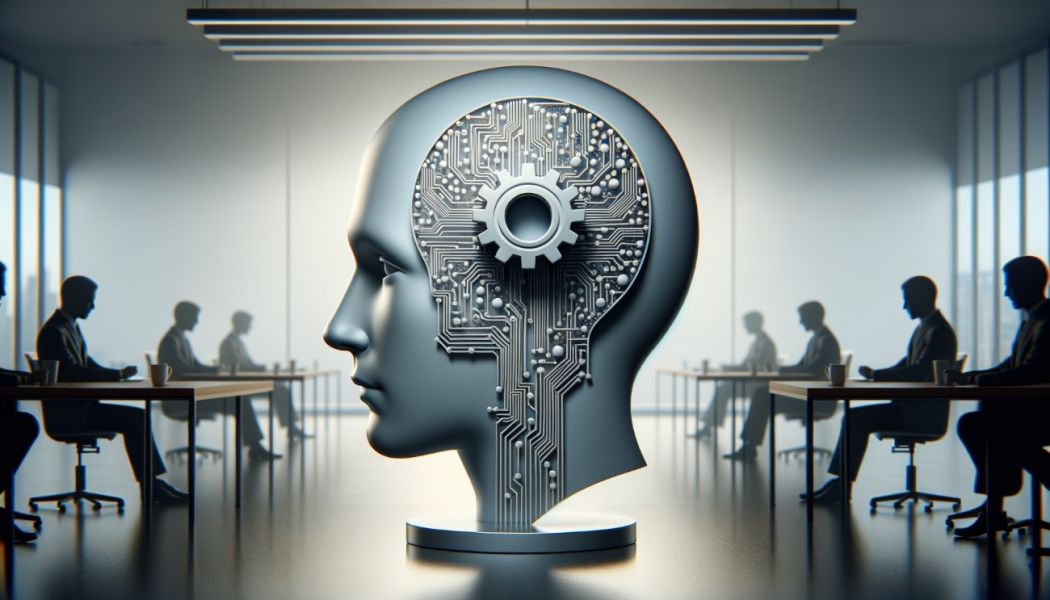Artificial Intelligence is coming to business – do the companies know how to use it?

Automated responses to customer complaints, instant responses to employee inquiries and even counterparty information analysis... These are just a selection of the possibilities that the popular ChatGPT brings to business, according to experts. We discuss business automation and potential directions for AI use in Polish and global companies in the coming years with Przemysław Lewicki, CEO of SAIO S.A., part of the ING Group.
FOCUS ON Business: Business process robotization (RPA – Robotics Process Automation) is – especially among larger entities like shared service centers – a relatively well-known technology. What and how might change the approach to automation with the emergence of increasingly well-known tools related to artificial intelligence (AI)?
Przemysław Lewicki, SAIO S.A.: I heard somewhere recently – which is certainly a statement somewhat over the top – that the world will soon be divided into those who use artificial intelligence and those who are looking for work. Artificial intelligence in business should not be feared, but we need to start using it wisely to improve our work. And by extension, to grow the company. Today, business runs many processes that could not be automated until now, because the technology available until now did not allow automation of more complex processes that require expertise. Companies process huge amounts of documents and data, which AI and generative models will finally be able to handle. After all, on one hand we have structured documents (e.g. invoices, forms, PITs and on the other unstructured documents (e.g. contracts, regulations, newspaper articles, etc.). So far we have been able to and have automated the former. Analysis of the latter, until recently, could not be automated either at all or to a very small extent – in such a way that it was not economically viable.
We have been involved in implementing business process automation for many years, so as soon as the opportunity to use ChatGPT presented itself, we immediately began testing its integration capabilities with SAIO.
How did the tests turn out?
Our goal was to see how to use ChatGPT to automate the customer service department, a place where a great deal of correspondence and interaction with customers is on the everyday agenda. Our specialists supplied ChatGPT with relevant documents and regulations, provided by our client, which describe the rules of provider-customer interaction. As a result, after automation, a SAIO robot responded to customer inquiries in real time.
The tests were so successful that we can already plan regular deployments of ChatGPT as an integral part of our solutions, based precisely on new age technology – LLMs, meaning large language models. We believe that such AI models, supplied in an appropriate and proven manner with reliable customer data, will further streamline company procedures and introduce great savings on a daily basis. Especially in economically challenging times and we come to companies with a technologically proven solution. Many of our customers appreciate robotization, as it has allowed them to survive in a situation of rapidly increasing volume of orders or turbulences in supply chains.
And above all, in building a competitive advantage, which has been made possible by improved operational efficiency and greater customer satisfaction. All of this ultimately leads to business growth.
How and in which sectors and departments of companies ChatGPT and other solutions based on so-called Large Language Models can provide real support in the future?
Thanks to artificial intelligence, entirely new possibilities are opening up for business to analyze unstructured documents in Polish (or any other language that AI supports). These generative models make it possible to work surprisingly, when analyzing such documents as legal or commercial contracts, for example. In this aspect, practically from the get-go, ChatGPT offers incredible potential for more profounds automations. Thinking more operationally: enterprises can – as I indicated earlier – use ChatGPT for, say, providing real-time support in customer service. Thus, with its natural language processing (NLP) capabilities, ChatGPT can respond quickly and efficiently to customer inquiries.
In addition, with its help, robots can quickly analyze and respond to complaints. ChatGPT creates an appropriate feedback message, which a robot can prepare for dispatch, for final review by a human in customer service (before the response is made available to the customer).
Another example of utilizing ChatGPT could be automation of repetitive tasks in the recruitment process in HR departments e.g. about checking resumes or supporting onboarding process for new employees. Automating such tasks will then allow HR specialists to focus on other activities and reduce the time of indivi dual procedures. Speaking of HR, ChatGPT can also provide employees with instant access to training materials and answer questions about development programs. Of course, ChatGPT's work for business needs to be configured with other tools – we are combining AI with RPA in this case. There are many more potential applications, to summarize – a new era of process automation has arrived.
We are talking about analyzing and processing huge amounts of data and information, often crucial to the company. What does the issue of cybersecurity associated with the use of AI, which raises concerns for many companies, look like?
For example – we implement lots of robotization in banking sector. Therefore, we had to develop methods that are 100%secure, because these requirements in the banking sector are particularly important. We also operate with such an approach when it comes to AI and ChatGPT. With the right procedures, the communication between the company and its data and AI is manageable and secure. The solution expected by the business is to create the possibility of processing company’s data in private and secure instance of ChatGPT.
What are the compelling reasons that companies cite when deciding to invest in the robotization of business processes?
The automation we offer is not only a cost-saving measure in hard times for business, but also a remedy for the multitude and complexity of IT systems of Polish and foreign companies. If an employee – without the involvement of IT specialists – can implement and control a bot that performs repetitive tasks for them automatically, and on top of that eliminates human errors – it is easy see the benefit in this.
In addition, the time to implement such a bot is sometimes only two or three weeks. In this context, we are a counterweight to large, expensive and difficult to implement IT systems, which often cause concern of the heads of both large corporations and SME companies. At the same time, we are not an additional burden on the systems and IT architecture already in place at the company.
In this approach, one can paraphrase the words of Sam Altman, the head of OpenAI which created ChatGPT: tactical solutions are becoming strategic today. Companies no longer have time to modify large systems because technology is changing so fast. So our robots, especially matched with artificial intelligence, are actually the simple answer to the daily pains of business. And above all, they offer fast ROI, peace of mind and security, as well as resilience to market and business turmoil. We test SAIO on ourselves, so sharing our experience supports the success of our customers.
Thank you for the interview.
This article comes from magazine:
FOCUS ON Business #12 September-October (5/2023)
 Check the issue
Check the issue








